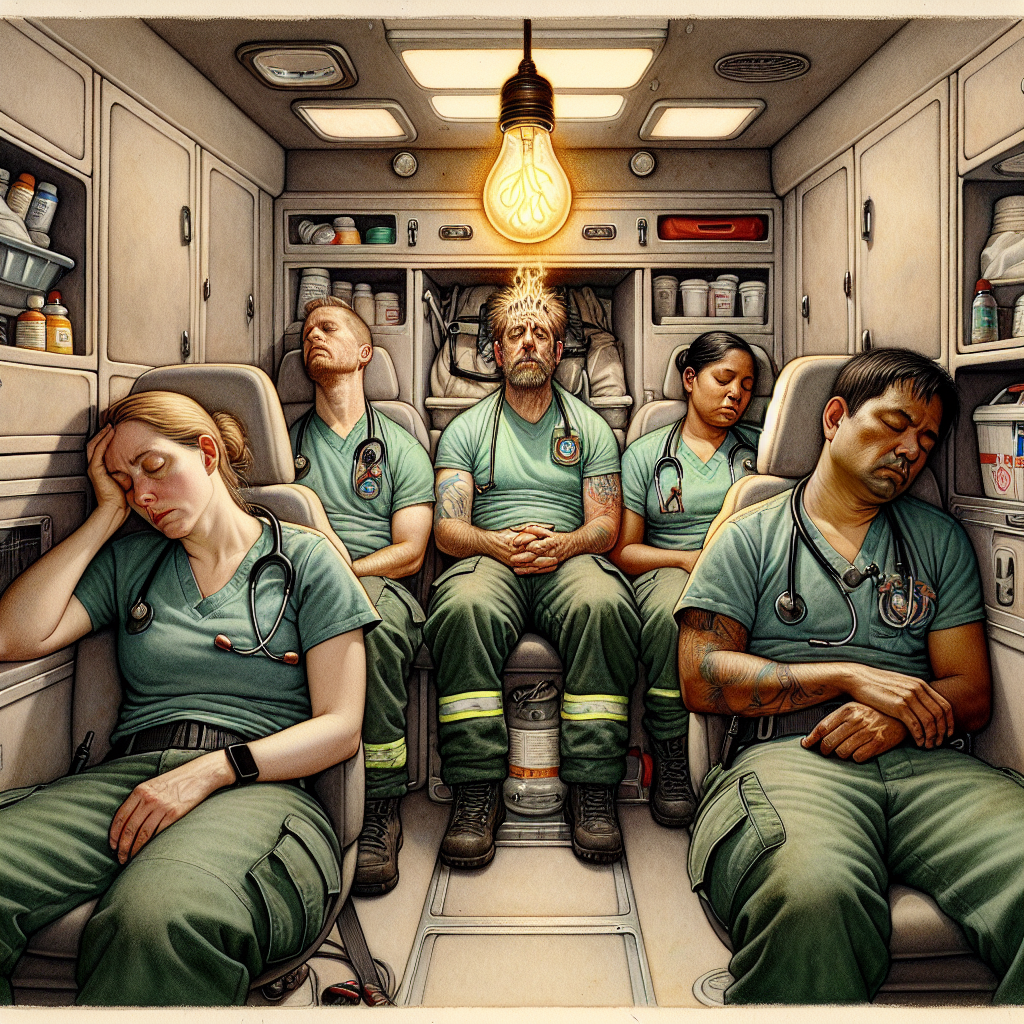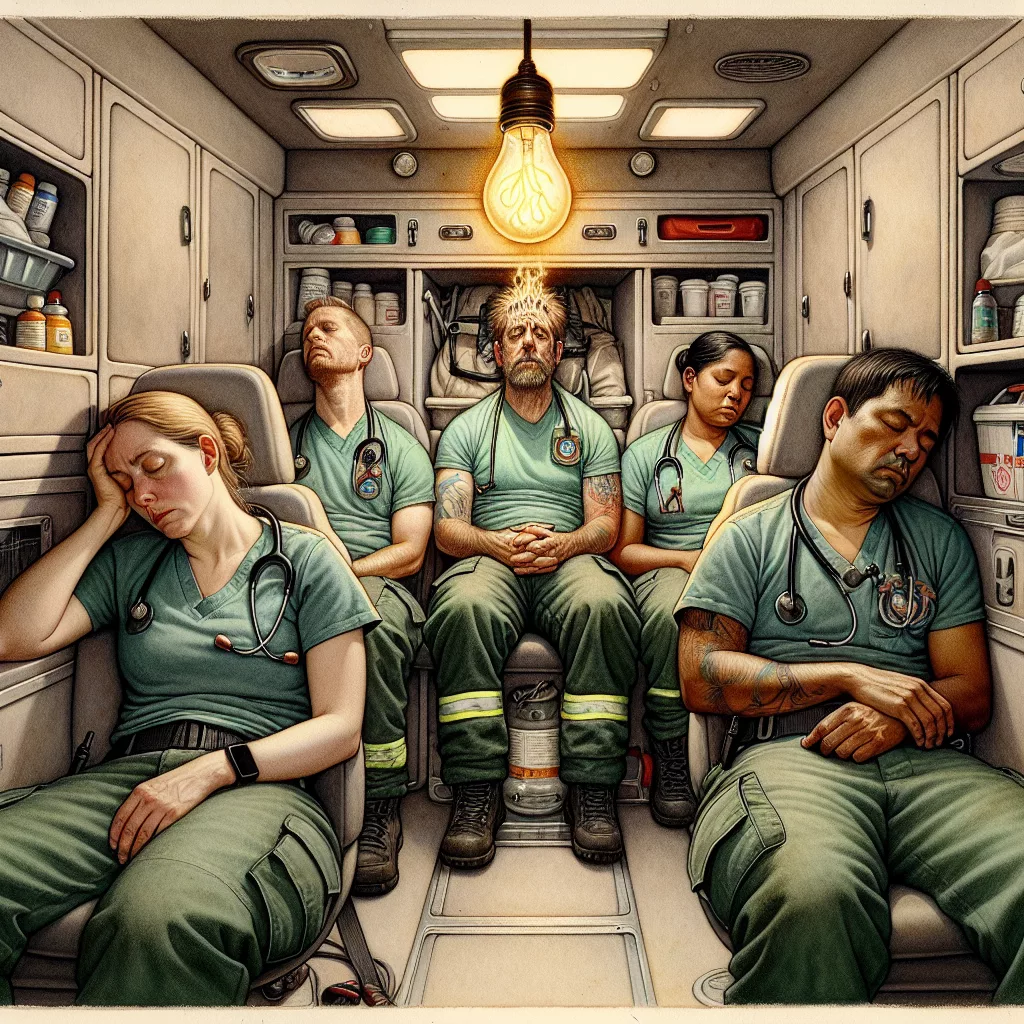Paramedics face a high burnout rate due to intense shift work, emotional strain, and the critical nature of their services, underscoring a pressing concern.

- Long shifts and irregular work hours.
- Frequent exposure to traumatic incidents.
- High-pressure decision-making in emergencies.
- Lack of adequate recovery time.
- Increasing administrative and documentation demands.
- Limited resources and support staff.
- Potential for physical injury or fatigue.
Data on career burnout statistics for Paramedics indicate that levels are severe.
Reasons Paramedics burnout
According to the science to date there are key reasons people burnout at work. Here’s our top reasons why Paramedic in the Healthcare category has a burnout risk of Severe:
High-Stress Environment: As a paramedic, you are thrust into high-pressure situations daily. The cumulative effect of dealing with life-and-death scenarios can lead to emotional exhaustion.
Irregular Hours: Paramedics often work long hours, nights, holidays, and weekends. These irregular schedules disrupt sleep patterns and personal life, contributing to fatigue and burnout.
Emotional Strain: You may encounter traumatic scenes and vulnerable individuals frequently. Continuous exposure to such situations without adequate coping mechanisms can wear you down emotionally.
Physical Demands: The role is physically taxing, requiring lifting, patient transport, and emergency interventions. Over time, physical strain can impact your health and increase burnout risk.
Lack of Resources: The demand for services often exceeds available resources, including staffing, equipment, and support. This can create a sense of inadequacy and stress among paramedics like yourself.
Public Scrutiny: In today’s digital world, paramedics are increasingly visible, with actions frequently observed and critiqued by the public or on social media. Constant scrutiny can add to job pressure.
Limited Career Progression: Many find that career advancement opportunities are limited, leading to job dissatisfaction. Feeling stuck in your career might exacerbate burnout effects.
Burnout rate data for Paramedic/Healthcare
In the healthcare industry, burnout is a critical issue, particularly among paramedics. Extensive data is available from reputable sources that examine burnout levels, causes, and consequences. According to a study by the National Institutes of Health, high levels of emotional exhaustion, depersonalization, and low personal accomplishment characterize burnout among healthcare professionals. Paramedics experience particularly high burnout rates due to exposure to life-and-death situations and irregular work hours.
Research published in the Journal of Emergency Medical Services highlights stressors like long shifts, lack of support, and high physical and emotional demands. Data indicates that these factors significantly contribute to burnout, impacting both personal well-being and job performance. For more detailed information, you can access studies on burnout among paramedics on NIH’s website (https://www.ncbi.nlm.nih.gov) and further insights at the Journal of Emergency Medical Services (https://www.jems.com).
Do you have experience of Burnout as a Paramedic or in Healthcare?
Share your story about Paramedic burnout on our share your story page.
Burnout in Healthcare
Career Burnout Rates > Burnout in Healthcare > Paramedic Burnout


